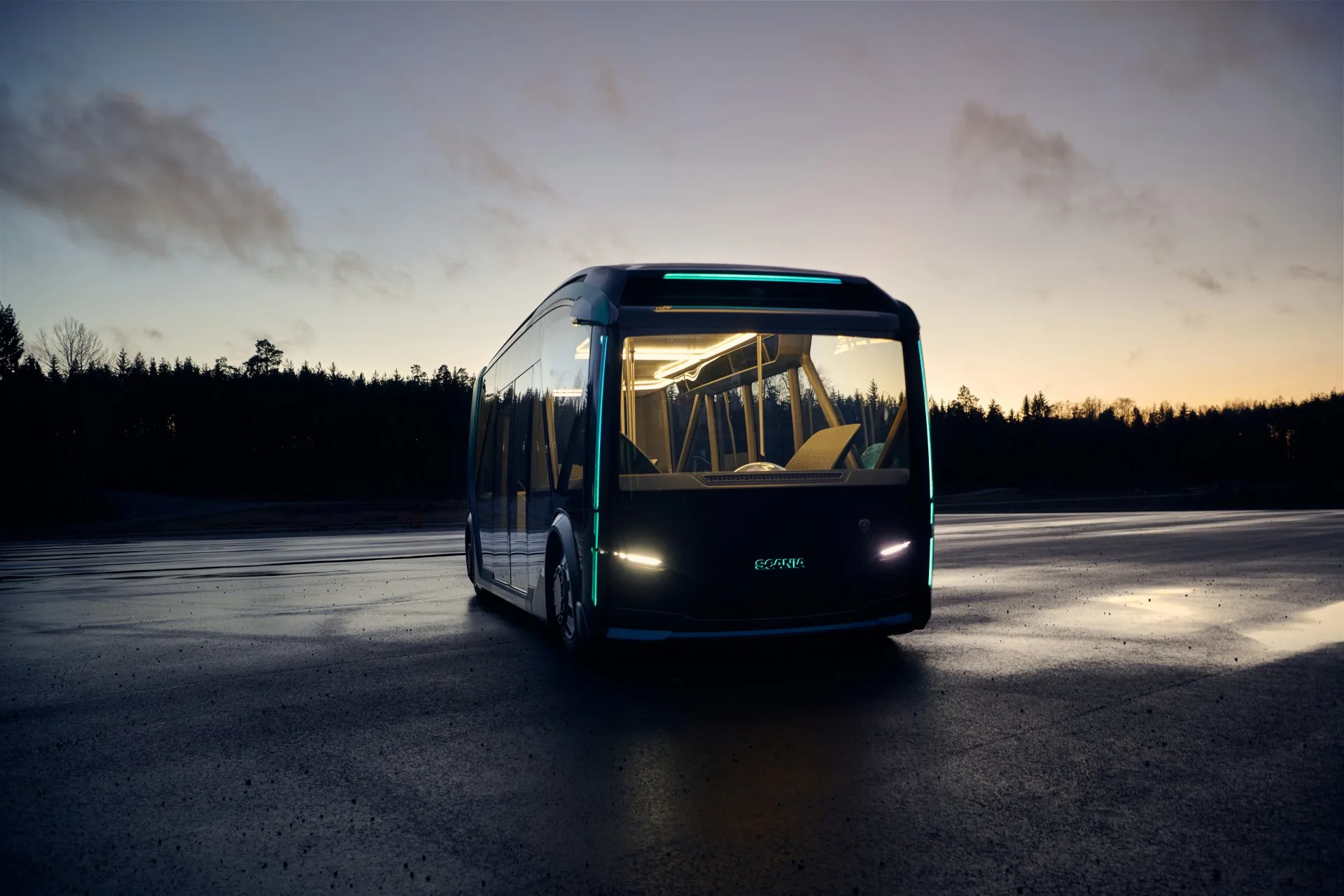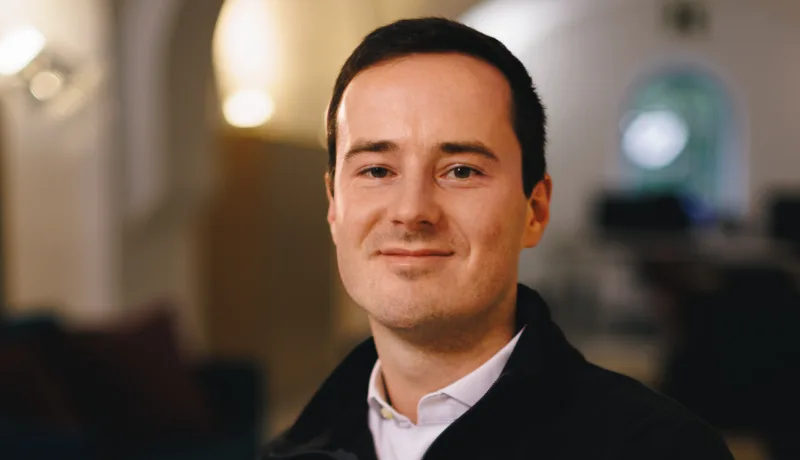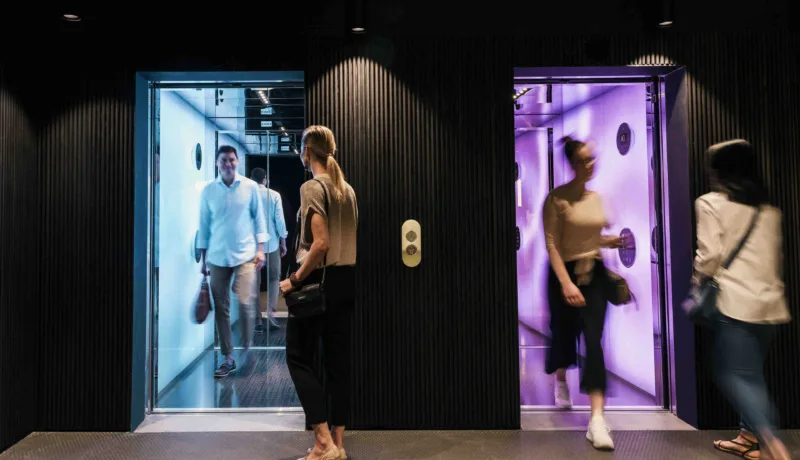An autonomous vehicle simulation software and toolchain provider, Applied Intuition, met Scania, a sustainable transportation solution provider, at Combient Foundry’s Value Proposition Days last spring. Now that a year has passed, we had a chat with Applied’s Founder CEO Qasar Younis to check in on how the collaboration is going.
Qasar Younis, Founder and CEO of Applied Intuition, brings a combination of automotive and Silicon Valley experiences to Applied Intuition. He spent seven years in the automotive industry, before founding a company that would be acquired by Google. He was one of the leads on Google Maps before joining Y-Combinator as the COO.
“I feel fortunate to connect my passion and professional background into one company,” Younis continues. “An opportunity like this is rare.”
SAFETY AND DEVELOPMENT, HAND-IN-HAND
Applied Intuition supplies the global automotive industry with simulation tools for autonomous vehicle testing. Used in parallel with real-world testing, Applied’s solutions help OEMs (original equipment manufacturers) to develop and test their algorithms faster and more safely.
“Simulation-first approach enables companies to develop faster and safer without the risks associated with on-road driving. You can’t just go out in the real world and test how your AV performs if an animal runs into a street out of the blue.” Younis explains. “That’s what simulation allows you to do, an adequate substitute for real-world testing in certain situations.”
For Applied, safety and development go hand-in-hand. As a third party, their promise is based on uncompromising testing integrity.
“As an independent company, we have no incentive to pass bad tests,” Younis says. “When we see unexpected events, it’s our immediate goal to report them and help developers identify the causes of the issues.”
A SEAMLESS, PROFESSIONAL PROCESS
Applied Intuition started working with one of the first Venture Client Opportunities Scania created and launched with Combient Foundry. It was also the first time Applied engaged with another company using the Venture Client Approach.
“It was a seamless process,” Younis summarizes. “And professional.”
The Foundry team had identified Applied earlier as a candidate to work with. Scania’s opportunity in autonomous transportation provided the perfect time to get in touch. Upon contacting the team, Foundry found Applied to have a pragmatic and professional approach to their work.
Applied impressed Foundry as a confident team. What made them stand out was their approach of keenly listening to the details of the challenge, discussing openly where they could be the best help to the Scania team, and being open-minded about where they could adapt. On top of all these, their positive attitude was backed with a clear interest and commitment to working with Scania.
DAY-TO-DAY EXECUTION AND FOLLOW-THROUGH
Right from the beginning, Younis’ team knew that working with Foundry and Scania would not be business as usual.
“We knew early on that when we were contacted by Foundry, that this was not just another procurement team,” he reflects on the first contact.
“In-house teams don’t always do a complete evaluation,” he goes on, identifying the main feature that stood out to him. To Younis, working with the third-party, Venture Client procurement team was a different type of experience. In many cases, a procurement team pays attention to previous spending decisions made within the company.
“That’s really the value we saw in this scenario, especially in markets where we have not established a strong foothold,” Younis elaborates further on the upside of the Venture Client Approach and working with Foundry. “Simple things like fast and complete answers. It might seem trivial and small, but that is what business is: day-to-day execution, professionalism, and follow-through: that’s what makes good companies great.”

Virtual testing using Applied’s simulation platform.
A METHODICAL APPROACH TO ENGINEERING
The Scania-Applied Intuition partnership has been a great experience for both teams. The two find themselves aligned with the priorities of working together in the industry.
Scania’s team appreciated Applied’s laser focus on helping OEMs make autonomous vehicles a reality. In the fast-moving field, the experience Applied brings to the table is greatly beneficial to them. What’s more, Applied’s fast responsiveness to their evolving needs, with an ability to turn ideas into features quickly, is extremely valuable to the Autonomous Transport Solutions team. Working with Scania and gaining benefits from their long-standing experience proved extremely valuable for Applied, according to Younis.
“I was really impressed with Scania’s methodical approach to engineering,” he says. “Scania’s been profitable every year since 1934. A lot has happened in the last 90 years and regardless of the year, they were profitable. That’s really impressive.”
“We have a clear point of contact and clear evaluation metrics,” Younis describes the setting. “[Their level of] professionalism… doing notes and following up. Just execution. It’s been really great. We really value our relationship.”
STATE-OF-THE-ART TECHNOLOGY
“[Applied Intuition’s] impressive and modern technology stack brought us in, and their professionalism, passion, and attention to details made us stay,” says Joel Skoghammar, Development Engineer at Scania Autonomous Transport Solutions. “We saw a team with a clear vision for how to solve the problem at hand, as well as a mature product. Something we’d missed in earlier engagements.”
As an example, Joel applauds Applied’s modular system, which is aligned with Scania’s way of working. The state-of-the-art technology of Applied’s offering also receives recognition among the team of experienced Autonomous Transport Solutions engineers.
The pleasure of working together is very much mutual. The teams are communicating almost on a daily basis to use the tools more efficiently, address pain points, and inform how to improve the products in the future. Joel and his team also give thanks to Applied’s customer-centric and flexible approach to collaboration.
WHAT DOES THE FUTURE OF THE INDUSTRY HOLD?
We at Foundry find awareness of tech trends to be of high importance when facilitating Venture Client relationships as startup-corporate collaboration. Talking with Younis, we couldn’t resist taking the opportunity to probe the thoughts of an operator who has sat on all sides of the VC, tech company, and auto industry tables.
What one needs to understand is that the automotive industry is in its DNA an ecosystem industry.
“It’s never been like one company makes everything and takes it to the market,” Younis explains. The ecosystem enables companies to load-balance better and thus ensures everyone in it can function profitably. It is the same force that is crucial for autonomy too: collaboration is not about to go out of fashion.
“The vertical companies that will survive are the ones that do the most narrow scoped amount of work and still stay differentiated,” Younis continues. For horizontal companies, he sees their mission to be gaining breadth. This way, costs can be shared across the industry as broadly as possible.
“That is the automotive business,” he proclaims. “It’s the supplier-OEM relationship within the industry that historically has been strong. One of the most important features of the industry.”





